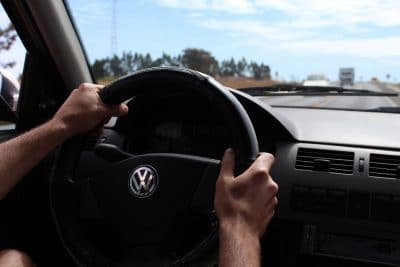Utah Distracted Driving Types
Hearing the words “distracted driving” normally brings to mind a driver who is using his cell phone to text, make a call or receive a call while driving. A number of fatal car crashes are due to distracted driving. A driver who is distracted can be limited in their visual and cognitive ability to react to the ever changing traffic situations before them. The highways are full of challenging situations that require the driver to give total concentration on driving to avoid accidents. For example, if somebody has blown a tire and might be losing control of the vehicle, other drivers must be attentive enough to avoid becoming entangled with other cars. The statement, “do not be caught unaware” is fitting to all motorists. This is because when you are on the road, weird things do and can happen. Examples of such situations include debris suddenly falling from a car you are following, a pedestrian might suddenly cross your path, a biker might suddenly appear on your side, or another driver might be suffering from a medical condition making him or her lose control over their car. If a distracted driver caused you injuries after an accident, our Utah car accident lawyer can help you get the fair compensation you deserve from the injures you sustained. With so many possible distractions on the road, the question ultimately becomes, is distracted driving a serious problem? Statistics revealed that in 2011, there were 3,331 people killed in crashes involving a distracted driver compared to 3,267 in 2010. Additional, 387,000 people were injured in motor vehicle crashes involving a distracted driver in 2011, compared to 416,000 people injured in 2010. 18% or one in five crashes in 2010, that injured someone was due to distracted driving. Cell phone ownership in the U.S. is so common that it was reported that in June 2011, more than 196 billion text messages were sent or received in the U.S., up nearly 50% from June 2009. In the end, each driver must evaluate if distracted driving is limited to the use of cellular phones and other electronic gadgets. The distracted driving types are categorized broadly into the following:
Table of Contents
Visual (taking your eyes off the road)
When you are doing something else other than driving, you are a distracted driver. Distraction might be in the form of eating, drinking, looking at a passenger while talking, applying makeup and picking something from the seat or floor that made you take your eyes off the road. You also take your eyes off the road when you look at billboards, people on the sidewalk, and on other areas aside from the road in front of you. You might also be distracted when you change the music selection of your car stereo or music player. Accidents may take seconds to happen and those moments you took your eyes off the road may make you at risk for a car crash.
Manual (taking your hands off the wheel)
Safe driving requires that you keep your hands on the wheel so that it will be easier to navigate the car as the situation demands. You might be tempted to remove your hand when you make adjustments to your clothes, apply cosmetics, reach out to touch a pet, or pick up something from the front or back seat. This also includes using one hand to hold food or drinks. Be fore warned, any of these options can create distracted driving.
Cognitive (taking your mind off of driving)
Talking and responding to a text requires a certain degree of concentration. When you are under some emotional distress and what we call as “not thinking clearly”, this is also considered being distracted. Please reduce or avoid distractions. Your safety and of others depend on it. If you have been injured in an accident where another party was distracted, please feel free to contact us at Christensen & Hymas for a free consultation.
Image courtesy of Celiosilveira. The image is in the public domain.
Free Consultation
Learn your Rights. Get Answers. Free.
